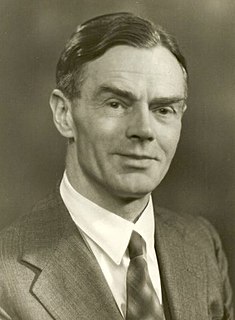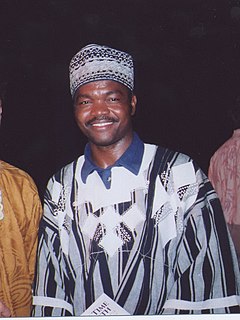A Quote by E. O. Wilson
To be anthropocentric is to remain unaware of the limits of human nature, the significance of biological processes underlying human behavior, and the deeper meaning of long-term genetic evolution.
Related Quotes
Any attempt to shape the world and modify human personality in order to create a self-chosen pattern of life involves many unknown consequences. Human destiny is bound to remain a gamble, because at some unpredictable time and in some unforeseeable manner nature will strike back. The multiplicity of determinants which affect biological systems limits the power of the experimental method to predict their trends and behavior.
The genes hold culture on a leash. The leash is very long, but inevitably values will be constrained in accordance with their effects on the human gene pool. The brain is a product of evolution. Human behavior-like the deepest capacities for emotional respone which drive and guide it-is the circuitous technique by which human genetic material has been and will be kept intact.
Evolution explains our biological evolution, but human beings are very unique creatures. As the Dobzhansky said, all animals are unique; humans are the uniquest. And that uniqueness of being human, language, art, culture, our dependency on culture for survival, comes from the combination of traditional biological evolution.
It is essential for evolution to become the central core of any educational system, because it is evolution, in the broad sense, that links inorganic nature with life, and the stars with the earth, and matter with mind, and animals with man. Human history is a continuation of biological evolution in a different form.
Human life has no meaning independent of itself. There is no cosmic force or deity to give it meaning or significance. There is no ultimate destiny for man. Such a belief is an illusion of humankind's infancy. The meaning of life is what we choose to give it. Meaning grows out of human purposes alone. Nature provides us with an infinite range of opportunities, but it is only our vision and our action that select and realize those that we desire.
By contrast with history, evolution is an unconscious process. Another, and perhaps a better way of putting it would be to say that evolution is a natural process, history a human one.... Insofar as we treat man as a part of nature--for instance in a biological survey of evolution--we are precisely not treating him as a historical being. As a historically developing being, he is set over against nature, both as a knower and as a doer.
The social dynamics of human history, even more than that of biological evolution, illustrate the fundamental principle of ecological evolution - that everything depends on everything else. The nine elements that we have described in societal evolution of the three families of phenotypes - the phyla of things, organizations and people, the genetic bases in knowledge operating through energy and materials to produce phenotypes, and the three bonding relations of threat, integration and exchange - all interact on each other.
Mosts scientist are unable to arrive at a specific definition of biological evolution. “Biological evolution is… change in the properties of populations of organisms (you and me) that [happen during] the lifetime of a single individual. The changes in populations that are considered evolutionary are those that are inheritable via the genetic material from one generation to the next
I think, questions about what it means to respect nature become very important because just as in human society, for example, part of what it is for me to live a good life as a human being in a human society is to have respect for others around me. Now, that respect, to some extent, can be thought of as being grounded in the rights and interest of others but it also has to do with the stance that I take in the world and what it is that provides meaning and significance in my own life and I think there are similar ideas of respect for nature that apply as well.
When you meet another human being, you meet the physical self, then you meet the psychological self that's behind it, which is their mental conditioning, their patterns of behavior and so on. And then, there is a deeper level to every human being that transcends all of that. I can only sense that in another human being and relate to another human being on that deeper level if I have gone deep enough within myself.

































